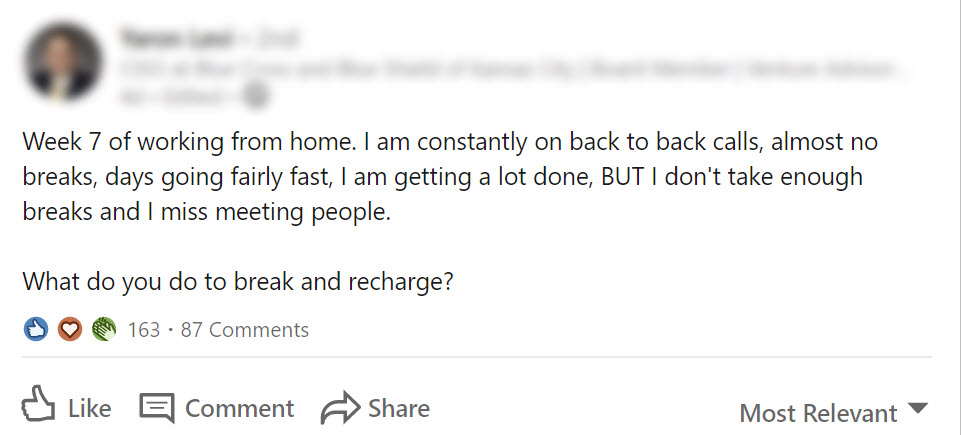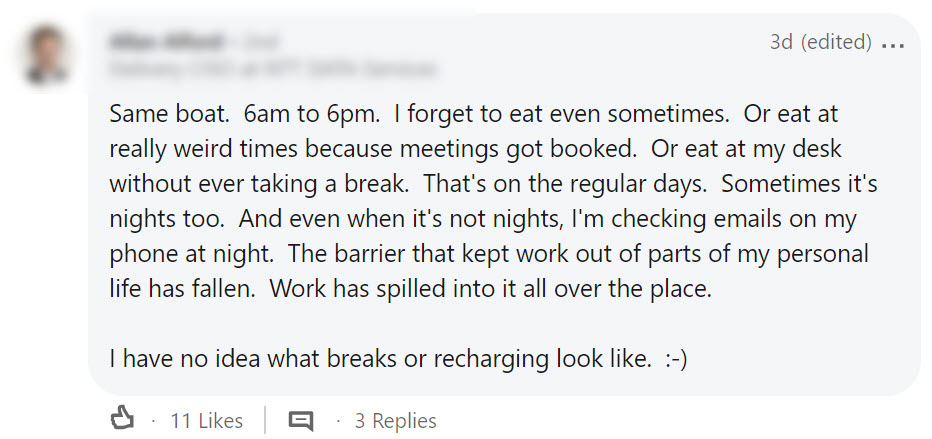Crew teams have Coxswains; Choirs have Leaders; Orchestras have Conductors. Virtually any endeavor where humans collaborate to create something greater than the individual, from fast food restaurants to launching a rocket, requires someone who choreographs the action. A leader is needed to steer the ship around obstacles and ensure that the workers are synchronized.
Often, the most successful leaders are those who have also been workers and can empathize with them – those who can not only talk the talk, but can also walk the walk. The same holds true in tech companies where the most successful technical managers have worked as engineers, programmers, and technicians before moving into management. The best of these managers see the big picture so that they can synchronize their teams while also having a first-hand understanding of the minute details. These stellar managers have wisdom from experience and the soft skills to mentor self-managing teams.
The transition from worker to manager is not always smooth. Sometimes in order to advance, companies without dual career tracks force ambitious workers into management. Managers may struggle to find satisfaction and validation in their roles, especially when one is anointed a manager without any formal training. Oftentimes, technical managers find it difficult to feel the pulse of a project without going deep into the weeds of the work. Managerial deep dives usually require time and attention from the people who actually do the work and result in unnecessary meetings. This type of micromanagement contributes to a culture of meeting overload.
Meetings kill productivity of all attendees, not just managers. This isn’t to say that all meetings are unnecessary. Rather, before sending out invitations, anyone who contemplates a meeting should weigh its value versus the lost productivity of its participants. Without this type of governance over meetings, managers and others can easily spend their days with a calendar chockablock with back-to-back meetings. For those who struggle to find meaning in their work, the busyness of meetings may provide feelings of importance and productivity.

A common LinkedIn business humblebrag , like the one above, includes a person complaining that immense success prevents him from focusing on his basic human needs. Similarly on the social network side, a typical Facebook humblebragger laments his inability to attend a desirable social event because of pesky foreign travel (pics included). The term “humblebrag” became an official entry in the Oxford English Dictionary in 2014 after the practice became ubiquitous in social media. Humblebrag is defined as, “Ostensibly modest or self-deprecating statements whose actual purpose is to draw attention to something of which one is proud.”
In response to the LinkedIn humblebragger above, many people commented, some of whom tried to provide useful suggestions like mindfulness and meditation. Others upped the ante and provided humblebraggier responses that could also answer the humblebrag-baiting interview question, “What is your greatest weakness?”

If people are going to brag, and they always will, they should at least congratulate themselves about actual accomplishments and not about attending a day of meetings. These are some proven ways to change the culture of busyness:
- Productivity First – For those scheduling meetings, carefully consider if it’s important enough to interrupt productive work time. If the meeting is necessary, keep it small and succinct. Note: The Zoom free version has a 40 minute meeting cutoff; this is regarded by many as a great feature.
- Consolidate or Eliminate – Combine similar meetings and jettison check-in meetings. If daily stand-ups exceed the short time that it’s comfortable to stand, either fix it or consider having teammates post their “what I did / what I’m doing / these are my obstacles” comments instead of discussing them.
- Forethought – Anyone who schedules a meeting should think about the topic enough to produce a cogent write-up beforehand. Take a page from Amazon and begin each meeting in silence while participants read the narrative. Not only will this result in more productive meetings, but the writing requirement discourages frivolous meetings.
- Reduce noise – Calm down and develop some focus. Try this experiment: prohibit meetings and Slack for one day a week. Employees will appreciate the uninterrupted time for concentration. If it’s necessary to exchange ideas, post them on an internal wiki page in narrative form – not bulleted lists. If employees (re)develop the ability to read and write in long-form, it will yield a more contemplative and less reactionary workforce.
Why do I speak so authoritatively about the false equivalence of busyness and productivity? It’s because, as a manager who began as a software developer, I fell into that trap. I didn’t humblebrag on LinkedIn, but I definitely spun my wheels holding and attending inconsequential meetings, micromanaging, and feeling falsely productive. I’m almost two years sober and now use my 10xPrinciples perch to recognize the same behaviors in other managers and help them accomplish true productivity.
